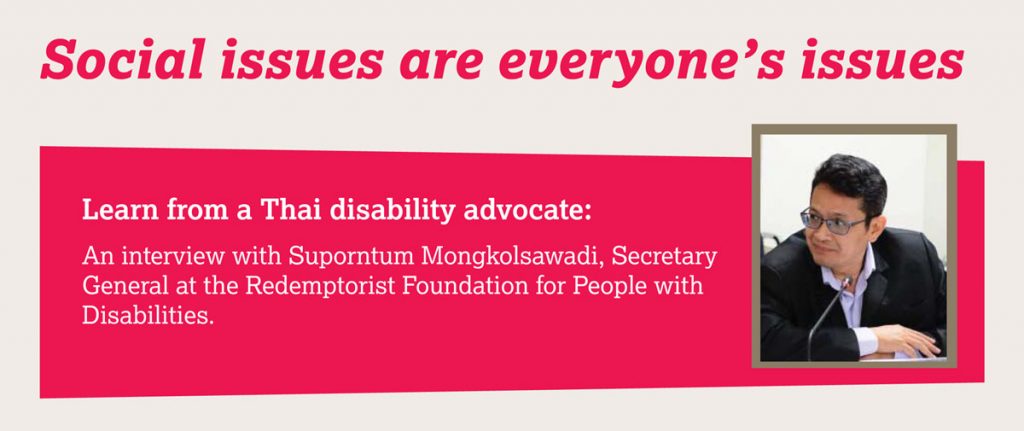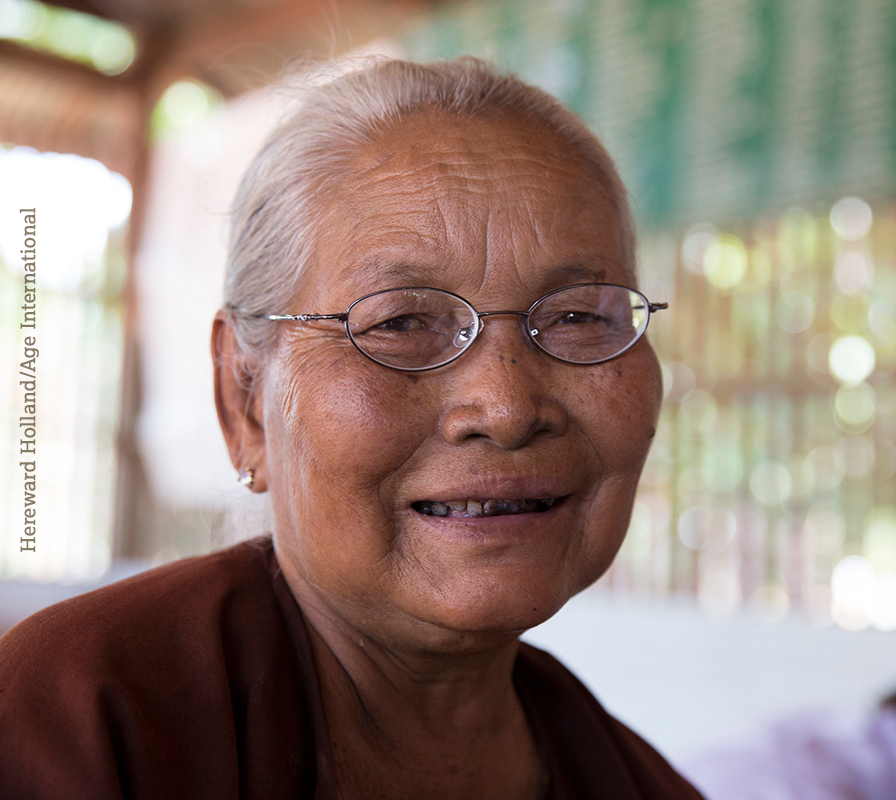
What was the experience of disability groups in advocating for their rights in Thailand and at the international level?
In 1981, when the UN announced the International Year of Disability, the disability movement began at all levels in Thailand. We had activists working at both regional and international level. We had UN offices in Bangkok, and they were supportive of our work.
There was also a movement towards the Decade of Disability in Asia Pacific 1993-2002. The network of people with disabilities at national, regional and international levels was well connected.
In Thailand, in around 1997, a new constitution was drafted. There was great involvement of disability groups as we had representatives in the drafting committee. The rights of people with disabilities were not recognised at the time, so we held many forums to share experiences and listen to the views of people with disabilities, and that created a lot of momentum on disability issues. We then teamed up with other NGOs, medical experts and rights-based organisations on advocacy work. Following that, people with disabilities were invited to join political parties. When a government was formed, an advisory group to the Prime Minister on disabilities was set up, and it was led by a disabled person.
At the international level, there was a movement for the Convention on the Rights of Persons with Disabilities (CRPD). Thailand appointed Mr Montian Buntan, a visually impaired senator, to represent the working group. That all happened as a result of the strong movement of disability groups. People with disabilities were very much involved in their own issues.
There were leaders and followers in this process. You called yourself a follower. Can you describe your role as a good follower?
When we negotiate with the government or political parties, one or two organisations alone cannot succeed. We need mass support. We need negotiators. We need someone to follow up what had been discussed and someone to create pressure. We need to set up forums, seminars, discussions and even organised rallies on the street. Therefore, the role of supporters was very important. For example, before the first law on disability in Thailand was passed, the draft simply provided guidelines on how things should be done to improve the quality of life for people with disabilities. It was not mandatory and there was no punishment for those who did not follow the
guidelines. We thought that this would not really benefit people with disabilities, so we negotiated, lobbied, and even protested. The role of leaders and followers had to complement one another to create an enabling environment for negotiations.
Why are rights so important?
If we don’t have rights, and live in a society based on charity, we are simply beggars waiting for leftovers. We will only get what the government thinks we should. The resources of a country do not belong to one group of people, they belong to everyone. A rights-based society means that a government must value its citizens. They must manage the resources and distribute them fairly.
What can older people’s groups learn from disability groups?
The issues of people with disabilities are not just about people with disabilities —they apply to issues of women and children as well as older people. Social issues are everyone’s issues. You have to make the issues of older people everyone’s issues. Of course, older people need to be the key and build the movement by themselves. It is crucial to find ‘champions’. You should link your work with other groups such as people with disabilities and other networks to gain support.
Many people with disabilities may not know much about the CRPD; that’s why you need ‘champions’ to talk about it. Keep talking about the convention for the rights of older persons to older people, to the government, to politicians. Even though the members of your network may not have a full understanding of it, they will soon realise that it is useful for them.
How does the Convention on the Rights of Persons with Disabilities (CRPD) help you with your advocacy work?
Thai laws on disabilities are quite advanced because we have tried to include the content from the CRPD. It is clear that the convention provides technical knowledge and enables us to use it and adapt it to the local context.
At first, I did not give much weight to the work at international level. However, I discovered that when dealing with government agencies and presenting them with our own research or findings at the national level, we could not go very far in our negotiations but referencing the narrative in the convention could help with the argument.
We would say to the government that since they had already signed up to the convention, it was their responsibility to keep their word.

